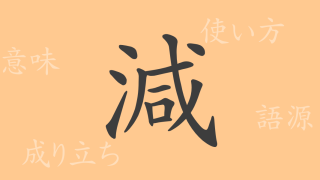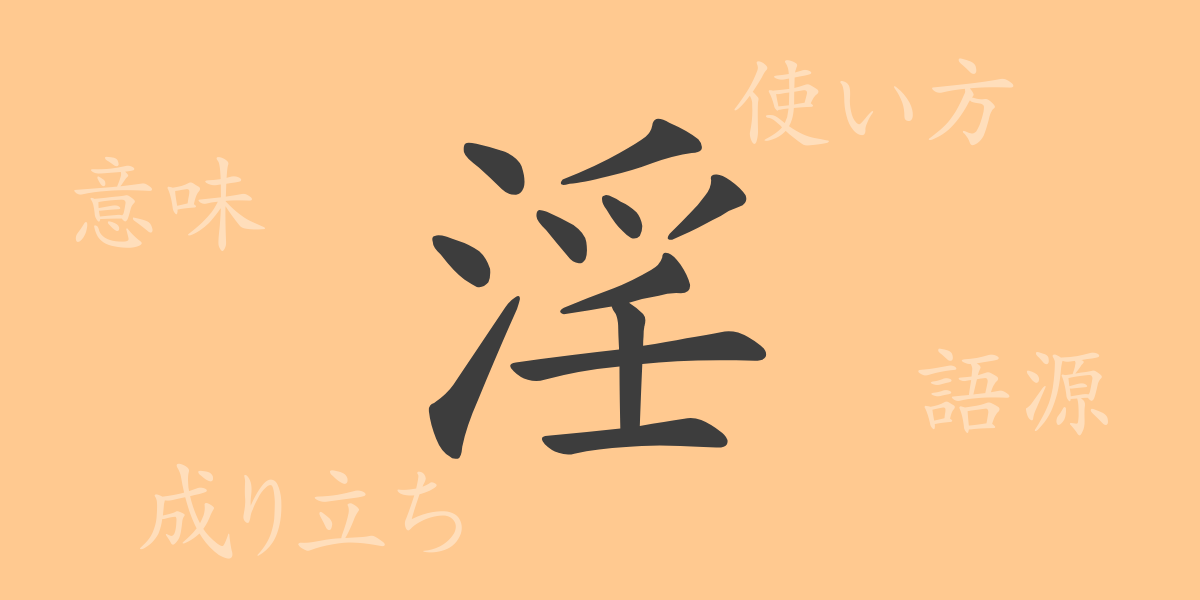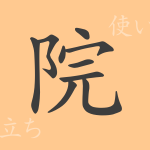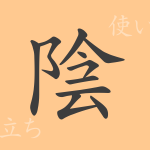“
Japan’s rich culture is also reflected in the profound depth of its language. The meanings embedded within a single Kanji character can evoke a wide range of emotions and scenes, shaped by its form and sound. In this article, we focus on one of Japan’s commonly used Kanji characters, ‘淫’ (In), delving into its historical background, meaning, and everyday usage. While at first glance, the Kanji ‘淫’ may seem to encompass themes often considered taboo, understanding its linguistic roots and cultural context allows us to glimpse the richness of its expression.
The Origin (Etymology) of 淫
The etymology of the Kanji ‘淫’ (In) traces back to ancient China. It is said to originate from the term ‘淫水’ (Insui), visualizing the state of overflowing water. Initially referring to a natural phenomenon, it later came to represent actions of people exceeding the bounds of moderation. ‘淫’ (In) symbolizes, as water strays from its course, how human behavior deviates from the correct path. Historically, from a moral standpoint, it was used to denote actions lacking self-control.
The Meaning and Use of 淫
In modern Japanese, ‘淫’ (In) is primarily used to denote sexual seduction, debauchery, and disordered conduct. It is also found in legal terminology, functioning as a term for actions that deviate from moral and societal norms, such as in the words ‘淫行’ (Inkou) and ‘淫乱’ (Inran). Additionally, it can be used metaphorically, and the character ‘淫’ (In) is sometimes employed to describe disturbances in the natural world.
Reading, Stroke Count, and Radical of 淫
The Kanji ‘淫’ (In) has specific readings and structure in the Japanese language.
- Reading: Onyomi (Sino-Japanese reading) is ‘In’, Kunyomi (native Japanese reading) is ‘Midara’
- Stroke Count: 11 strokes
- Radical: 水(MIZU – water)
Phrases, Idioms, and Proverbs Using 淫 and Their Meanings
Idioms and phrases containing ‘淫’ (In) strongly reflect the meaning of the character. For instance, ‘淫乱’ (Inran) refers to behavior or personality that deviates from sexual moral standards, while ‘淫靡’ (Inbi) indicates something that is voluptuous and lacks taste. Although not commonly used in proverbs, as an idiom, there are terms like ‘淫蕩’ (Intou – excessive lewd behavior) and ‘淫欲’ (Inyoku – excessive sexual desire).
Conclusion on 淫
The Kanji ‘淫’ (In), as its shape and sound suggest, represents the state of natural forces or human actions exceeding moderation. This single character encapsulates the disorder of human behavior from the perspective of morals and ethics, and its profound meaning is reflected in law, literature, and everyday conversation. Understanding the rich meanings imbued in just one Kanji character deepens our appreciation of the complexity and cultural background of the Japanese language.
“

























